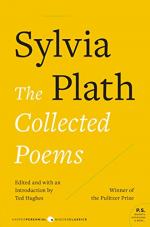|
This section contains 408 words (approx. 2 pages at 400 words per page) |

|
Speaker (Plath)
Conventionally, while the reader should be careful not to equate the speaker of a poem with its author, “Tulips” is an exception to this rule. The highly personal and confessional nature of “Tulips” allows for the argument that the poetic persona of “Tulips” is also the author’s voice. Many critics agree that the speaker featured in this poem is Plath herself, or otherwise a version of the poet that she presents on the page.
Throughout the poem, Plath regards the titular tulips with wariness and attempts to keep them away from her. In the first line of the poem, she declares that “The tulips are too excitable,” a sentiment of mistrust and dislike amplified in the final stanza when she decides, “The tulips should be behind bars like dangerous animals” (1, 57). Nonetheless, Plath’s chosen passivity at the beginning of the poem leaves her powerless against the...
|
This section contains 408 words (approx. 2 pages at 400 words per page) |

|




